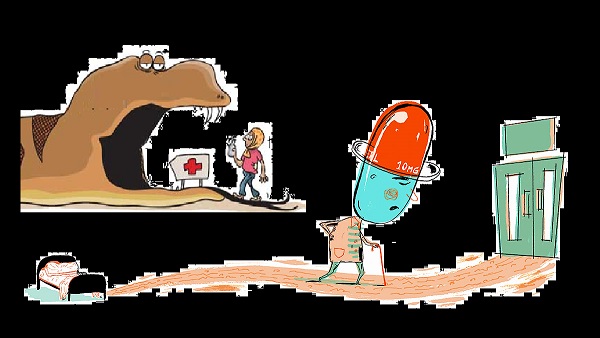
Corona exposes deep-rooted corruption in BD health sector

The COVID-19 outbreak has exposed the inefficiency, mismanagement and deep-rooted corruption in the health sector as the sector has largely been blighted by lack of monitoring and accountability for years.
The epidemic finally spurred the government to spend money on public health, but the mismanagement and incapacity to best utilise the money, while a greater portion of it got lost into the corrupt system, failed to yield expected results, according to experts.
They also felt that government’s failure to send proper messages to the people and to engage them in the prevention of the novel coronavirus spread are linked to the overall inefficiency of the health ministry and Directorate General of Health Services officials.
All this, according to experts, led to the half-hearted implementation of the policy decisions.
Bangladesh on March 8 confirmed the first COVID-19 cases and the country so far tallied 3.27 lakh cases with over 4,500 deaths.
In the past six months, the country did not experience the COVID-19 health catastrophe that many initially feared would happen, but the uncertainty and vulnerability regarding the spread of the disease still remains due to the absence of epidemiological data about the strange new virus that already wreaked havoc in several nations across the globe.
‘COVID-19 exposed our muddled, weak and corrupt health system,’ said World Health Organisation former regional adviser Muzaherul Huq.
‘Six months into the outbreak, we are still living in uncertainty and are clueless about the future as well as the course the COVID-19 epidemic might take,’ he said.
Since the novel coronavirus emerged in China in late December, Bangladesh’s preparedness was marred by incapacity to run tests and develop infrastructures for patients to be placed on isolation and inadequate treatment of all the affected.
Add to that the refusal to admit patients in hospitals, including those that are designated COPVID-19 facilities.
The government and donors allocated funds for the preparation and purchases of medical supplies, but the big scams and shady deals undermined the process since the start.
Regent Hospital hogged headlines after the Rapid Action Battalion exposed the irregularities, including the shady business of issuing fake COVID-19 certificates, and undue privileges enjoyed by its owner because of his political clout.
Hard on the heels of the irregularities in fake N95 masks supply by a company favoured by government officials and the busting of the virus test scam by Regent, more such scams surfaced.
The JKG Healthcare was busted for issuing fake coronavirus test reports.
Involvement of officials in the scams led to major changes in Directorate General of Health Services, including the removal of its director general, but the health ministry officials, who are also accused of their involvement in the irregularities, remained untouched and even the health secretary was promoted to a senior post.
The corruptions in World Bank-funded emergency COVID-19 project kept surfacing one after another, but no measure was taken accept for the removal of the project director.
According to media reports, auto parts trader, garments trader and electronic items traders secured deals involving crores of money with the DGHS for delivering medical supplies.
Some of the suppliers delivered substandard products, while others just made fortunes supplying fake items as well as by providing less items than the number mentioned in the contract.
Transparency International Bangladesh executive director Iftekharuzzaman said that some quarters and people took the COVID-19 epidemic as a means to make quick money illegally.
Mismanagement in the country’s health sector got exposed one after another following the COVID-19 outbreak.
Meanwhile, patients with the symptoms of COVID-19 were hard put to access healthcare, get tests done, secure isolation beds while contact tracing was marred by mismanagement.
While patients failed to get quality care at the COVID-19 dedicated hospitals, there were others who were refused treatment adding more deaths to the national tally.
The situation shook the confidence of the people, prompting them to turn away from the hospitals.
COVID-19 patients died at homes after deciding not to go to hospitals.
Since May 17, at least 635 COVID-19 patients died at homes and 31 died on the way to hospitals, accounting for 14.75 per cent of the total COVID-19 deaths occurring outside hospitals.
The government failed to implement its own directives during the lockdown and after businesses reopened as wearing masks, maintaining social distancing at markets and public transports are issues that remained unattended.
Public offices and hospitals still lack adequate handwash facilities. The ones that were propped up across the
Editor & Publisher: S. M. Mesbah Uddin
Published by the Editor from House-45,
Road-3, Section-12, Pallabi, Mirpur
Dhaka-1216, Bangladesh
Call: +01713180024 & 0167 538 3357
News & Commercial Office :
Phone: 096 9612 7234 & 096 1175 5298
e-mail: financialpostbd@gmail.com
HAC & Marketing (Advertisement)
Call: 01616 521 297
e-mail: tdfpad@gmail.com